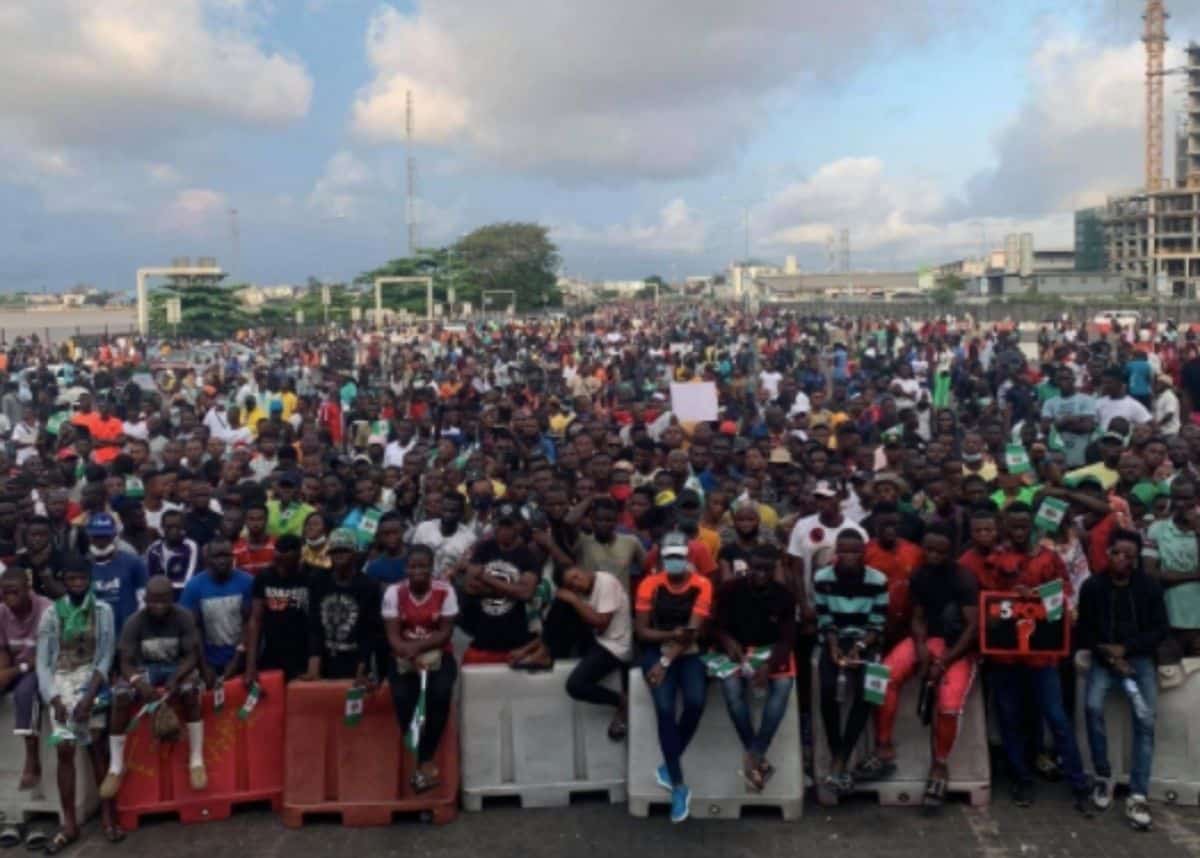There are no products in your shopping cart.
| 0 Items | £0.00 |


NIGERIA Police Force (NPF) have been asked to pay End Sars protesters N10m ($6,533) in damages as compensation for the violation of their fundamental human rights during the crackdown on their protests in 2020.
Five years ago, widespread protests broke out across Nigeria to protest the brutal killings by men of the Special Anti Robbery Squad (Sars) police unit. It all sparked off when Sars operatives killed a young boy identified as Joshua Ambrose in cold blood in Delta State but unfortunately for them, videographer Prince Nicholas Makolomi, recorded the whole incident live.
So fierce was the public mood that the then inspector-general of police Mohammed Adamu was forced to announce the dissolution of the Sars unit. Hundreds of civil society groups, including the likes of the Catholic Bishops Conference of Nigeria endorsed the protest against police brutality over the saying the demonstrations were truly justified.
Following a month-long nationwide protests, the government decided to end the protests forcefully on October 10 2020, sending soldiers to shoot innocent protesters at the Lekki Toll Gate in Lagos, leading to international condemnation and sparking nationwide riots. On the evening of October 20, the authorities removed some of the CCTV cameras at the toll gate before soldiers were deployed there to open fire on protesters.
However, the Lekki Concession Company (LCC), which operates the toll gate, said some of its cameras were still working and it has submitted the footage from the incident to the judicial panel of inquiry set up by the Lagos State government to investigate the killings. Abayomi Omomuwa, the LCC managing director, said the surveillance cameras at the toll plaza stopped working at 8pm on the said night but soldiers opened fire on unarmed protesters from about 6.45pm, meaning that the incident would have been captured.
Earlier today, , a Lagos federal high court awarded N10m in damages against the inspector-general of police and the Lagos State police commissioner for violation of the fundamental rights of several peaceful protesters. Delivering the judgment, Justice M. Kakaki held that the applicants were unjustly harassed and their rights infringed upon.
This suit was filed against the police by Hassan Taiwo Soweto, Uadiale Kingsley, Ilesanmi Kehinde, Osopale Adeseye, Olamilekan Sanusi, and Miss Osugba Blessing. Other plaintiffs included Kayode Agbaje, Michael Adedeji, Jennifer Rita Obiora, Orunsola Oluremi, Seyi Akinde, Akin Okunowon, Ugochukwu Prince, Aisha Omolara, Thomas Abiodun Olamide, Ogbu Obinna Ferdinald, Aghedo Kehinde Stephen, Duronike Olawale, Isaac Obasi, Funmilayo Jolade Ajayi, Gideon Adeyemi and Afeez Suleiman.
Education Rights Campaign, Take It Back Movement and the Committee for the Defence of Human Rights were also part of the suit. According to the court, the police have constitutional powers to enforce laws but such powers must be exercised in accordance with democratic principles and the rule of law.
In his ruling, the judge affirmed that the applicants were entitled to the constitutional right to freedom of peaceful assembly and association as contained in the Nigerian Constitution. Several petitions have been sent to human rights bodies worldwide, with the International Criminal Court being put under pressure to act on the matter.